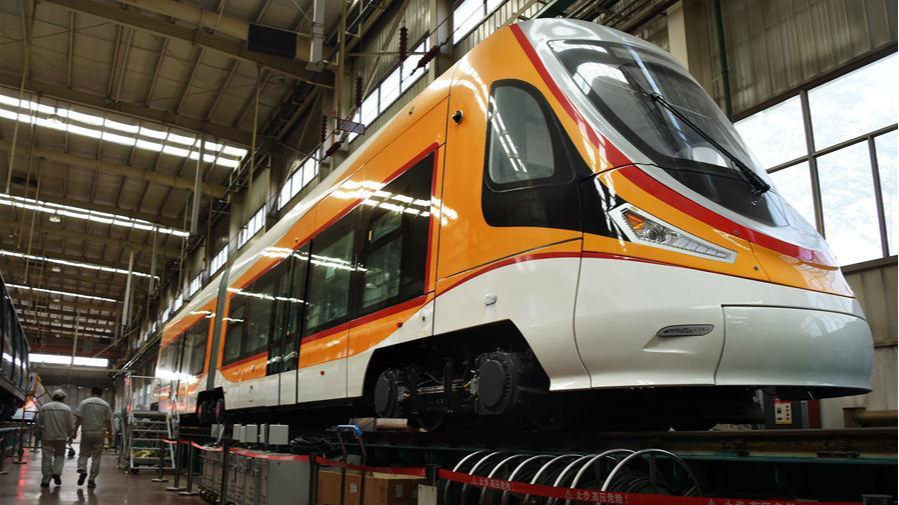
This photo taken on June 6, 2023 shows a new-energy light rail train made by CRRC in Tangshan, north China's Hebei Province. [Photo/Xinhua]
"We are absolutely willing to use our tools to make sure that we get fair competition," EU competition chief Margrethe Vestager said on the sidelines of the Munich Security Conference, one day after Brussels declared an "unprecedented" investigation into Chinese train maker CRRC Qingdao Sifang Locomotive on the grounds of alleged subsidy distortion of the EU single market.
Against the backdrop of geopolitical tensions and economic slowdown, the China-EU relationship matters. Both sides have therefore engaged in intensified bilateral contacts and dialogue on trade, economy, climate, human rights, and foreign policy issues over the past few months, demonstrating their commitment to improving ties and promoting values.
Brussels' investigation and Vestager's remarks, however, have not only dented the positive momentum of bilateral trade cooperation, but also seriously undermined fair competition and thus will inevitably hurt the EU's economy.
Brussels has an obligation to use its trade toolbox if its anti-subsidy investigations are transparent, fair, and based on solid evidence. However, the EU's investigation against CRRC Qingdao Sifang Locomotive lacks a factual basis. Citing "sufficient indications that the company has been granted a foreign subsidy that distorts the internal market," the EU has not provided any convincing evidence so far.

A tram designed for high-altitude region at the CRRC Qingdao Sifang Co. in Qingdao, east China's Shandong Province. [Photo/Xinhua]
The Bulgarian public procurement project that the Chinese firm has participated in meets the thresholds of mandatory notification under the Foreign Subsidies Regulations, and the company has already filed a complete notification in January, according to a statement by the China Chamber of Commerce to the EU (CCCEU).
Brussels' move is widely seen as a result of political calculations. It is worth noting that any rapidly developing China-made products that Brussels regards as a potential "threat" to local products are easy targets of the EU's investigations. As the largest rolling stock manufacturer, CRRC has contracts in more than 110 countries and regions. For anti-China protectionist politicians in the EU, this is not good news for European companies.
Apart from the train maker company, Brussels has been paying close attention to major Chinese firms in energy vehicles, solar panels, wind turbines, and 5G products. In October last year, the European Commission formally launched an anti-subsidy investigation into the imports of electric battery vehicles from China, a move widely criticized as unfair and not transparent.
The EU's politically biased decisions against Chinese firms and Vestager's protectionist rhetoric have tremendously hurt the feelings of Chinese companies and will only put China-EU ties in jeopardy. The investigation has sent a "discouraging message" to Chinese investors and dented their confidence in continuing to expand in Europe. In addition, any unfair EU sanctions could invite countermeasures from China and thus cause a "boomerang" effect.
Moreover, history has repeatedly proved that cooperation, not confrontation, is the best solution to competition. In the era of global integration, trade openness and liberalization are the basis for common development. Brussels' protectionist measures under the banner of "fair competition" cannot solve its own development problems.
Admittedly, European companies may face some pressure from competition with their Chinese counterparts. In the face of competition, Brussels can choose to join hands with Beijing to make the cake of economic and trade cooperation bigger. China is willing to expand cooperation with all players on the global arena, and it is the EU's turn to show some sincerity.
A zero-sum mentality will only lead to a multi-lose scenario. Instead of acting and talking tough on China, Vestager-like politicians should consider more about making the cake bigger, and a fair treatment of Chinese firms could be the first step.

 中文
中文



